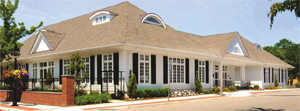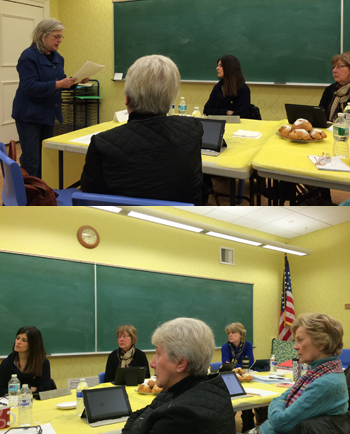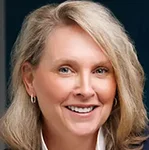|
|
Westhampton Beach trustees, faced with overwhelming opposition, killed their proposal to have “twin police chiefs” costing $350K. It was a ploy to distract from WHB’s real problem—an eruv Jewish religious boundary.
27east.com reported that the board had received “an unprecedented amount of public backlash” to the proposal and killed it at a meeting Feb. 12.
Two reps of odwyerpr.com attended the WHB library board meeting Feb. 11 and offered to give the library several hundred pages on the dispute that has cost WHB, Southampton and Quogue $884,837 in lawyer fees thus far. Jewish People Opposed to the Eruv have spent $100K+ on the battle bringing total costs on the defensive side to above $1 million.
Since three lawsuits are winding their way through Federal Courts there will be more legal costs. On top of this, Marvin Tenzer of the East End Eruv Assn. says a win for the EEEA could bring a “multi-million dollar award.” Weil, Gotshal & Manges, EEEA’s law firm, says it has “significant” expenses.
WHB library trustees listened to the two O’Dwyer reps but would not accept any materials on the eruv battle such as copies of the lawsuits by EEEA, Verizon and LPEG/LIPA, the replies to the lawsuits, and media coverage.
The trustees refused to engage in any discussion of the subject. The reps were told they could stay for the rest of the meeting but that there would be no discussion of the eruv. The reps left. No other members of the public were present.
SH Accepts Materials; Board Meetings Controlled
Rogers Memorial Library, Southampton, has agreed to keep a “vertical file” of materials on the dispute. It is available if people ask for it but it will not be publicized. The battle that has raged since March 7, 2008 when the Hampton Synagogue filed with Westhampton Beach for a religious boundary enclosing one of its three square miles.
Library boards, under New York State law, must admit the public to their monthly meetings. But they don’t have to let anyone speak. If they do, the boards are not required to respond.
![]() The NYS Handbook for Library Trustees says:
The NYS Handbook for Library Trustees says:
“Board meetings are for the conduct of library business. They are not public hearings about library affairs. The Open Meetings Law makes no provision for public participation…”
The NYS Committee on Open Government has this section:
“Can I speak at a library board meeting?
The Law is silent with respect to public participation. While it has been advised that a public body does not have to allow the public to speak, many choose to permit public participation…”
That’s an odd sentence in the NYS Handbook: “The Open Meetings Law makes no provision for public participation.” Only lawyers could dream up such an irrational statement.
The battle over Orthodox efforts to “mark” public territory in WHB as their private “domain” will have its seventh anniversary on March 7.
This is a rich and expensive stew of religion, law, PR, marketing, and local and national politics. It is being played out also in Miami Beach where foes of eruvim got one taken down in Pine Tree Park last summer, thus invalidating all the eruvim in MB.
However, it’s back up again, MB has told us, even though it can’t locate the needed permit for the eruv. “Just because we can’t find the permit does not mean it does not exist,” MB PR has explained to us. That matches in irrationality the statement above about “public meetings” that do not allow “public participation.”
|
|
WHB Library Board Non-Committal
WHB Library trustees include president Joan Levan, who was a WHB village trustee in 2008 when the eruv proposal was put forth, and Mayor Marie Moore, whose husband, Thomas, a lawyer like Marie, was on the village Zoning Board of Appeals from 2007-2010.
The trustees have been sent links to hundreds of pages about the eruv dispute since Jan. 20. Included is the Jan. 22 O’Dwyer exhibit of 20 items such as legal filings, media coverage and our own reports. The trustees have had ample opportunity to be informed on this issue.
Thomas Moore resigned from the Zoning Board three years before his term was up after a dispute erupted about “controversial resolutions” he authored. Local blogger Dean Speir covered the flap in detail. Thomas now operates a blog called progress4WHB that covers his wife’s administration.
The four members of the Moore family, including Maria, Thomas and daughters Elizabeth and Jackie, are shown in this photo that appears on 27east.com. The website does not allow uses of its photos by other media so it is not shown here.
Levan Board Nixed Eruv
The WHB board that Levan sat on rejected the proposal of the Hampton Synagogue which led to lawsuits against WHB, Southampton and Quogue not only by EEEA but by Verizon and PSEG/LIPA which had drawn up contracts to let EEEA attach “lechis” (usually black plastic strips) the entire length of the utility poles. Verizon and PSEG/LIPA demanded that WHB o.k. its contracts with EEEA.
Court decisions thus far are based on the alleged ignorance of citizens about the meaning of lechis. They say “reasonable” citizens cannot know the meaning of lechis on the poles even if they could see them. Court decisions note that lechis are “almost invisible.” The lechis that were supposedly put on WHB poles last August were clear plastic. However, citizens have been unable to find any such strips and no one connected with their alleged erection, including EEEA, Verizon and PSEG/LIPA, will say where they are.
Precedent cases include those settled long before the internet. However, now everyone can know just everything immediately. WHB citizens know lechis establish a "home" for the Orthodox.
Some Urge “Active” Libraries
Libraries should have a role in this battle since they are supposed to combat ignorance and provide “education.” What we are getting instead is politics.
The pro-eruv side is based on superstition and belief in the supernatural. Court decisions are weighed down by precedents established decades ago. America was founded as a secular nation. The Constitution does not mention "god."
“Libraries should be open to all—except the censor,” said John F. Kennedy. “We must know all the facts and hear all the alternatives…let us welcome controversial books and authors.”
Gordon Conable, VP of Library Systems and Services, urges libraries to get involved in public debate and discussion. “Libraries are storehouses and access-distribution-and-retrieval centers for an exploding body of human knowledge and opinion…the proponents of the various points of view must be able to make their cases…”
Libraries, like newspapers, are being upstaged by the web. People carry online “libraries” in their pockets that are vastly superior to physical libraries because of the cascade of links that are provided in online stories.




 Maggie Moran, who is well-connected in New Jersey and New York Democratic politics, has established Moxie Strategies in Asbury Park, NJ.
Maggie Moran, who is well-connected in New Jersey and New York Democratic politics, has established Moxie Strategies in Asbury Park, NJ. Husch Blackwell Strategies has added FleishmanHillard alum Michael Slatin as a principal in its public affairs group.
Husch Blackwell Strategies has added FleishmanHillard alum Michael Slatin as a principal in its public affairs group. Rory Cooper, a veteran Republican operative and policy specialist, has joined Teneo’s Washington office as senior managing director in its strategy & communications practice.
Rory Cooper, a veteran Republican operative and policy specialist, has joined Teneo’s Washington office as senior managing director in its strategy & communications practice. Brian Fallon, who served as national press secretary for Hillary Clinton’s 2016 presidential run, is signing on next month as Vice President’s Kamala Harris’ campaign communications director.
Brian Fallon, who served as national press secretary for Hillary Clinton’s 2016 presidential run, is signing on next month as Vice President’s Kamala Harris’ campaign communications director. TikTok is nothing more than a Chinese propaganda tool that poses “a grave threat to America’s national security and, in particular, impressionable children and young adults,” say two Congressmen who want the platform registered as a foreign agent.
TikTok is nothing more than a Chinese propaganda tool that poses “a grave threat to America’s national security and, in particular, impressionable children and young adults,” say two Congressmen who want the platform registered as a foreign agent.


 Have a comment? Send it to
Have a comment? Send it to 
No comments have been submitted for this story yet.